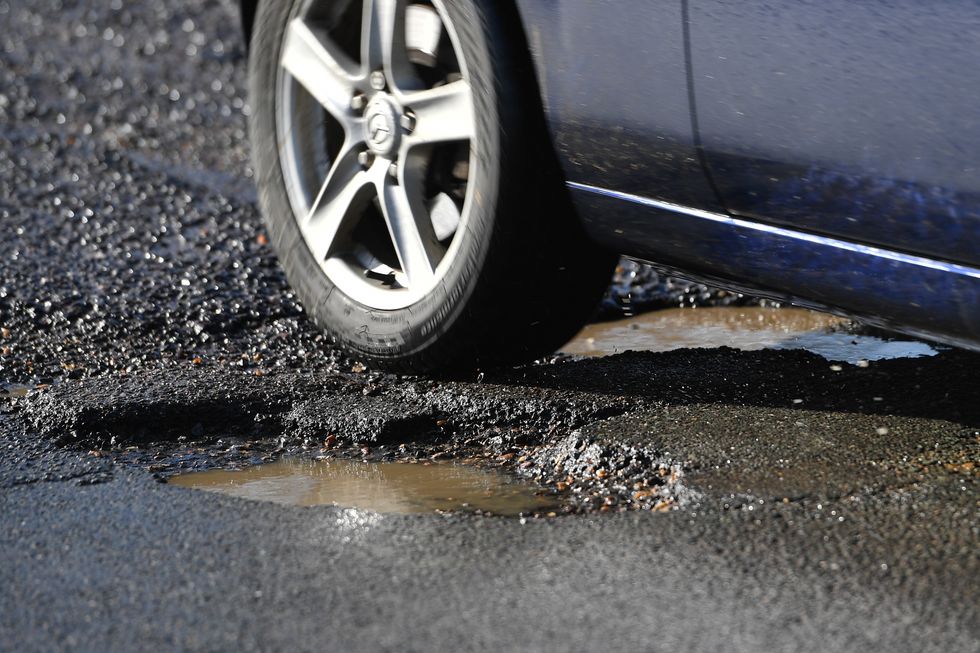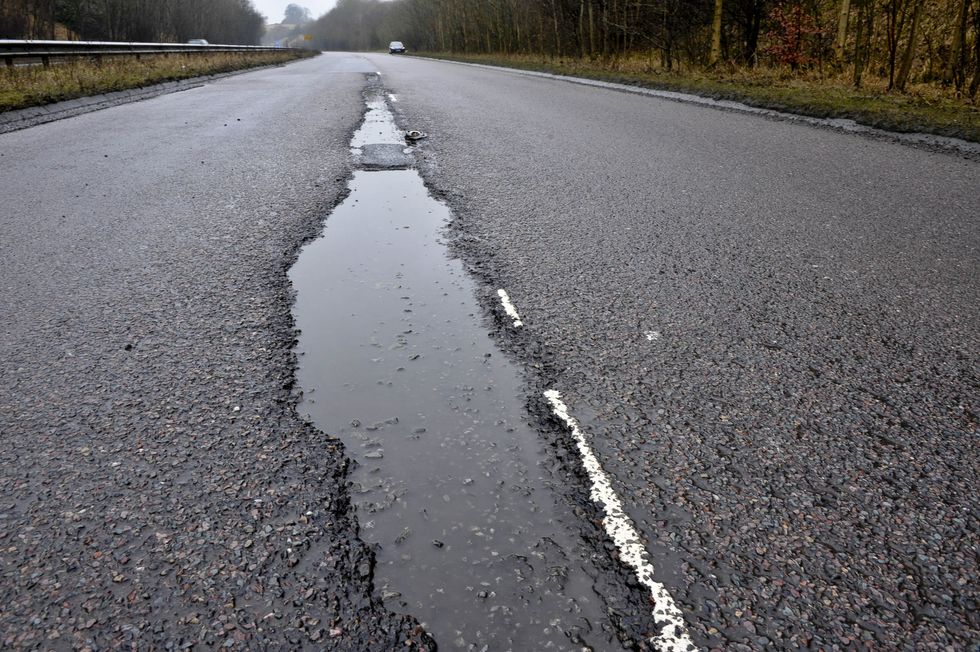It costs an average of £863 to repair damaged vehicles following a pothole collision
Don't Miss
Most Read
Trending on GB News
Experts are warning motorists that they could face up to £2,500 in fines if they swerve to avoid a pothole on roads as they could be prosecuted for careless or inconsiderate driving.
Despite potholes being a local authority task, data has shown that 90 per cent of drivers still have issues with potholes in their areas.
A further 60 per cent of drivers warned that their vehicle has been damaged as a result of a pothole or know friends and family who have had issues, with the risk of fines being handed out if someone drives carelessly or without due care and attention.
Potholes cause drivers to slow down or stop sharply to prevent unnecessary damage while others have to drive or swerve around potholes entirely to avoid sharp costs and insurance claims.
Do you have a story you'd like to share? Get in touch by emailingmotoring@gbnews.uk

Local authorities saw a 66 per cent increase in pothole-related vehicle damage claims in 2023
PA
Greg Wilson, founder and CEO of Quotezone.co.uk, said: “With the cost-of-living crisis pushing insurance premiums up, costly damage to vehicles due to potholes is the last thing drivers need.
“We are calling for there to be more information on how drivers should tackle problematic potholes in their area.
“Pothole-related damage to vehicles is becoming more expensive as parts, paint and repair costs all soar, meaning drivers are having to lose their no claims bonus to claim for repairs.
“It’s one of the key reasons that car insurance costs are on the rise, a surge in claims is escalating insurance premiums right across the UK.”
With the current poor weather conditions and a lack of funding, Wilson warned that it is causing roads to deteriorate leaving many drivers frustrated.
Research by insurer Zurich found that it costs an average of £863 to repair damaged vehicles following a pothole collision.
Last year, local authorities saw a 66 per cent increase in pothole-related vehicle damage claims, while claims in the month of February doubled compared to the previous year.
The Government recently pledged to tackle the pothole problem and said it would provide £1billion in investment to the Local Transport Fund with money set aside to fill potholes.
A pothole can form from general wear and tear or when water leaks into cracks and freezes in cold temperatures.
When the weather starts to get warmer, the frozen water evaporates leaving gaps in the road which continuously get bigger as more and more vehicles drive over them.
Alix Bedford, risk expert at Zurich UK, explained that many local roads are already well past their designed lifespan and continuous added pressure coupled with more extreme weather events will eventually mean that patching up potholes will no longer be sufficient.
It will get to the point where roads will need to be completely resurfaced, he warned.
LATEST DEVELOPMENTS:
- Car tax changes slammed as drivers reject pay-per-mile measures over fears it would breach privacy
- Electric vehicles are 'integral' to meet net zero aims amid strong demands to remove diesel cars from roads
- Sadiq Khan to send scrapped Ulez cars to Ukraine with 'plenty of money left' for petrol and diesel drivers

A pothole can form from general wear and tear or when water leaks into cracks on road
PA
Bedford explained that the announcement that local authorities will have more funding to repair potholes is "great news" for both local authorities and motorists but does not begin to touch the full cost to repair the road network and keep Britain moving in the future.
He added: “Not only would we like to see more funding for highways maintenance in the upcoming budget, but more flexibility for local authorities to allocate their spend where they see fit.”









